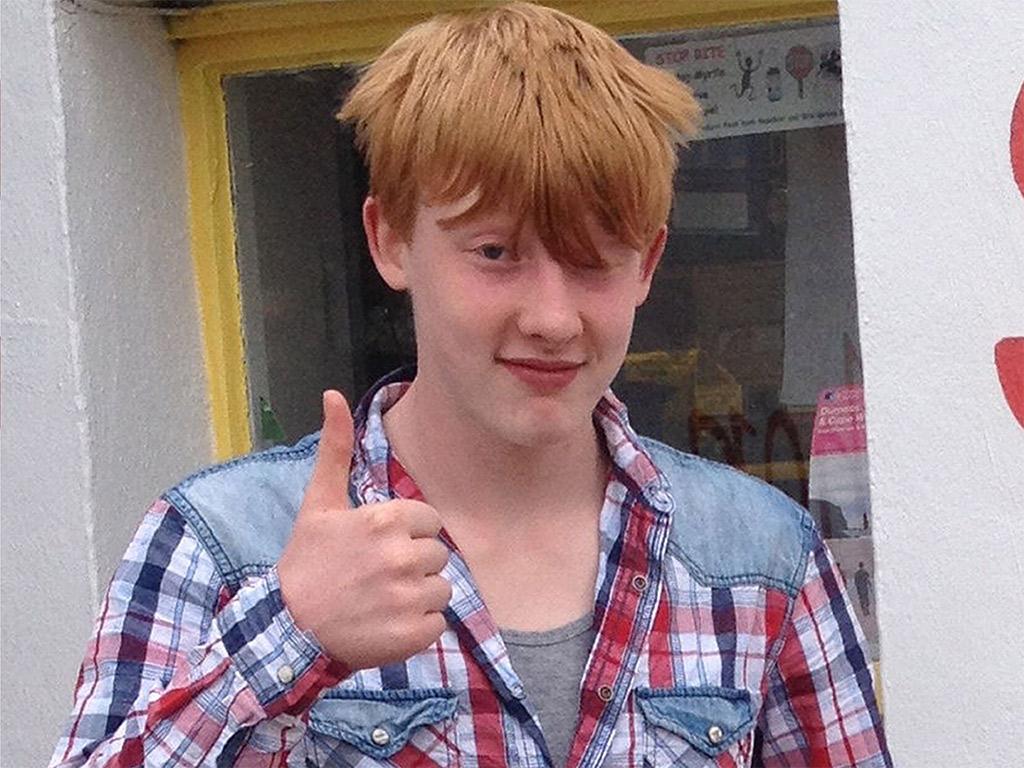Bailey Gwynne report: death of 16-year-old stabbed at school was ‘avoidable’
Bailey Gwynne was stabbed to death in October 2015 at Cults Academy, a high-performing state school in Aberdeen

Your support helps us to tell the story
From reproductive rights to climate change to Big Tech, The Independent is on the ground when the story is developing. Whether it's investigating the financials of Elon Musk's pro-Trump PAC or producing our latest documentary, 'The A Word', which shines a light on the American women fighting for reproductive rights, we know how important it is to parse out the facts from the messaging.
At such a critical moment in US history, we need reporters on the ground. Your donation allows us to keep sending journalists to speak to both sides of the story.
The Independent is trusted by Americans across the entire political spectrum. And unlike many other quality news outlets, we choose not to lock Americans out of our reporting and analysis with paywalls. We believe quality journalism should be available to everyone, paid for by those who can afford it.
Your support makes all the difference.The death of schoolboy Bailey Gwynne might have been avoided if those who knew his killer carried weapons had reported it to staff, an independent review has concluded.
The multi-agency probe into the stabbing of the 16-year-old at Cults Academy in Aberdeen has made a series of recommendations, including calling on the Scottish Government to consider changing the law to give teachers more power to search pupils.
Bailey’s killer, a 16-year-old youth who cannot be named due to his age, was locked up for nine years in April after a jury found him guilty of culpable homicide and carrying weapons.
The review, led by child protection expert Andrew Lowe, concluded the fight that took place during the school lunch hour on 28 October last year could not have been predicted or averted on the day.
But it found the course of the conflict was “fatally altered” by the fact the killer had a knife, which could have been avoided if others who knew this had reported it to staff.
During a five-day trial at the High Court in Aberdeen, a friend of the boy said he had shown him a knife and knuckledusters he had in his possession on several occasions from the end of 2014.
The review’s conclusions state: “This was an unplanned, spontaneous conflict that emerged rapidly out of an unexceptional banter. It is not considered that it could have been predicted or averted on the day.
“The course of the conflict was fatally altered by the possession of a bladed weapon by one of the boys.
“This was potentially predictable and avoidable if those who knew Child A carried weapons in school had reported it to staff.”
Currently in Scottish schools, pupils have to give their consent to be searched, with police notified if consent is withheld and a child or young person is suspected of carrying a weapon.
The review recommends the Scottish Government “should improve the resilience of schools to the threat posed by weapons and give consideration to amending the law in relation to searching pupils”.
The trial also heard the knife used in the stabbing had been bought online, without the killer having to prove his age.
“The Scottish Government should explore the further legislative controls that can be brought to bear on the purchase of weapons online,” the review states.
It recommends that Aberdeen City Council works with Police Scotland to draw up a “clear and effective” policy on the management of offensive weapons in schools, and that pupil forums and councils develop “safe” ways to allow young people to share any knowledge of weapons with teachers.
The probe also calls for individual risk assessments for anyone “known or suspected to carry offensive weapons” and “age appropriate” training for P7, S1 and S5 pupils on knife crime.
The review concluded that the incident had been “well-managed” by all the agencies involved.
Join our commenting forum
Join thought-provoking conversations, follow other Independent readers and see their replies
Comments